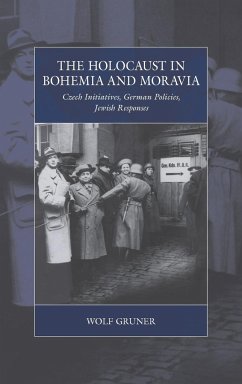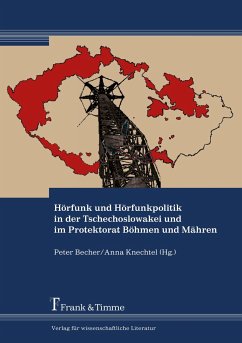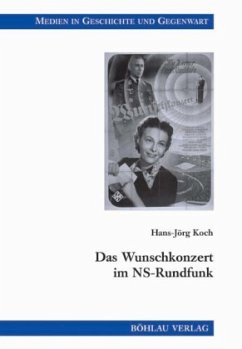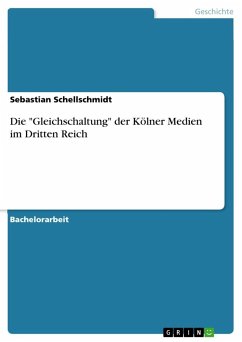
Broadcast Policy in the Protectorate of Bohemia and Moravia
Power Structures, Programming, Cooperation and Defiance at Czech Radio 1939-1945
Versandkostenfrei!
Versandfertig in 6-10 Tagen
94,05 €
inkl. MwSt.

PAYBACK Punkte
0 °P sammeln!
Hitler's regime invested heavily into radio as the most modern media of its era. First in Germany, later in Austria and the Sudetenland, Joseph Goebbels motivated his Volksgenossen to become active radio listeners. But what approach did the regime take to the first non-German people occupied - the Czechs? How would Czech Radio's staff and listeners respond to Nazi-dominated programming? What strategies of defiance and what options for cooperation existed? What role did Nazism's core theme of anti-Semitism play? Which Czech societal groups did the Nazis try to reach most? This book casts a spot...
Hitler's regime invested heavily into radio as the most modern media of its era. First in Germany, later in Austria and the Sudetenland, Joseph Goebbels motivated his Volksgenossen to become active radio listeners. But what approach did the regime take to the first non-German people occupied - the Czechs? How would Czech Radio's staff and listeners respond to Nazi-dominated programming? What strategies of defiance and what options for cooperation existed? What role did Nazism's core theme of anti-Semitism play? Which Czech societal groups did the Nazis try to reach most? This book casts a spotlight on the effects of the occupation authorities' policies on specific programming content, as well as on radio as a medium in the so-called Protectorate of Bohemia and Moravia.












